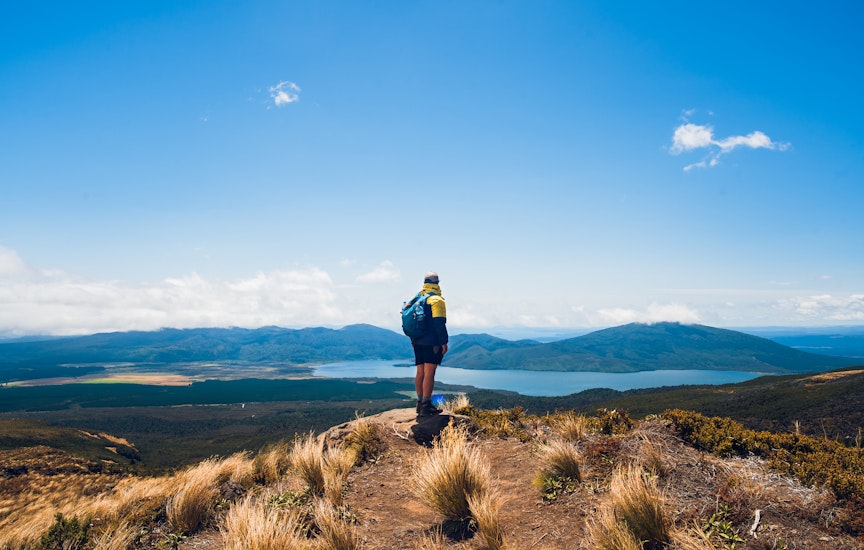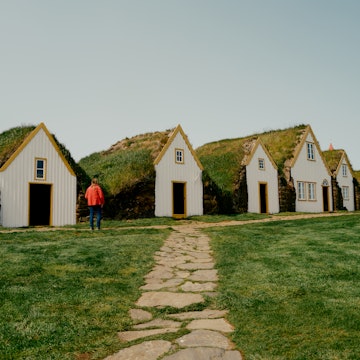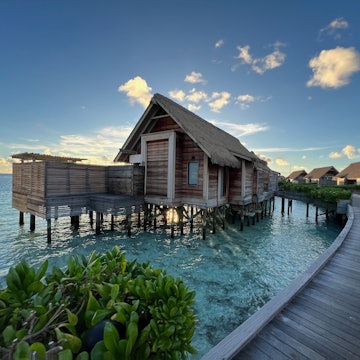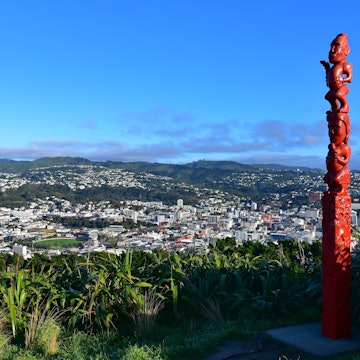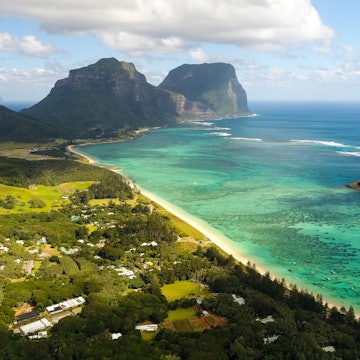

Auckland. @ Didier Marti/Getty Images
With a population of around 1.6 million, Auckland is New Zealand’s only big city. Despite its size, it is a generally safe and surprisingly easygoing place to visit.
One-third of its residents were born overseas, which is why you'll see strong British, Asian and Pacific Islander influences. This mix underscores the city's appreciation for different cultures, and travelers will feel welcomed in many places.
It might be the largest city in Aotearoa (New Zealand’s Māori language name), but note that Auckland is not the country's capital – that's Wellington. Here are 17 other things to know before you visit.

Practical advice for Auckland
1. Pack casual clothes
Auckland is a relatively informal city. There are very few places where you need to dress up, even if you’re catching a show at the theater or going to a nice restaurant for dinner. While many people do dress up to go out, you can also wear jeans almost everywhere, so don’t feel like you need to pack your best clothes if you’re short on luggage space.
2. Check your luggage for restricted items
Your first introduction to Auckland will probably be at the airport. To protect the natural environment, New Zealand has very strict laws around what you cannot bring into the country. Read the form carefully and declare any item that could be restricted or deemed a risk to biosecurity to customs officials. This could include food, feathers, shells, seeds, wooden items, herbal medicines, and sports or outdoor equipment that you've used overseas. It’s much quicker and easier to declare than to accidentally bring prohibited items into the country and experience a longer processing time.
3. You don't need cash
Almost no one in Auckland uses cash – you can use your credit card or debit card to pay for even small purchases. Contactless payments are common. If you’re handed a terminal, you’ll see three choices: cheque, savings or credit. The first two work for local cards only. For international cards, just use the credit option and enter your PIN or sign as usual.

4. Bring a pair of good walking shoes
There are several beautiful hikes around Auckland, so good hiking shoes will come in handy. To help protect Auckland’s native bush (and avoid delays at customs), give them a good cleaning before you pack them in your bag.
5. Wear sunscreen, even on overcast days
The sun in Auckland can be very harsh, even when the temperatures don’t seem that high and it looks cloudy outside. Remember to wear sunblock before heading out, especially between 11am and 3pm. It’s very easy to get sunburned in a very short amount of time.
6. Clean your shoes before and after you go for a bush walk
Auckland has several native forests with walking or hiking trails through the trees. Before you enter, you may see a shoe-cleaning station with brushes and spray for your shoes. This is to stop the spread of kauri dieback, a disease that affects the huge, native kauri trees. Clean your shoes before and after walking through the bush to help prevent it from spreading further.

Etiquette in Auckland
7. Pay at the counter
When you eat out in Auckland, restaurants and cafes may offer table service, or you may need to order food at the counter. If you order at the counter, you usually pay immediately, before eating. If there’s table service, when you are finished eating, it’s customary to get up and pay at the counter, rather than asking for a bill to be brought to the table.
8. You don’t need to tip
While you may see an occasional tip jar at a cafe, tipping isn’t common in Auckland. Tips may be appreciated but definitely aren’t expected, and tipping is the exception rather than the norm. In fact, if you leave change on the table, don’t be surprised if your server tries to return it, thinking you accidentally left it there.
9. Bring food if you’re invited to dinner
If you’re invited to someone’s house and asked to “bring a plate,” take a dish of food with you. This could be sweet or savory. If someone invites you to a meal and tells you not to bring anything, it’s still polite to bring a bottle of wine, a small contribution to the dinner or a token gift for the host (like a small box of chocolates). After the meal, guests usually offer to help clear the table and clean up.
10. Take off your shoes when you enter someone’s home
It’s customary to take off your shoes before entering someone’s house unless told otherwise. Nowadays, wearing shoes indoors is a little more common, but it’s safer to assume that you should remove your shoes before coming inside.

11. Be prepared to talk about where you come from and your heritage
In Māori culture, people introduce themselves by talking about where they come from and their ancestors. In Auckland, many people originally came from other countries, and it’s common for locals to ask you about where you come from and even about your ethnic background and heritage.
If you go to a marae (Māori meeting ground) during your visit, it’s customary to introduce yourself by talking about where you come from and your family’s connection to that place.
12. Don’t sit on or lean against tables
Sitting or leaning against tables, countertops or any other surfaces that are used for food preparation is generally frowned upon by all New Zealanders and is particularly offensive to Māori.
13. Remove your shoes before entering a marae
It’s customary to remove your shoes before entering a wharenui (meeting house), and you’ll often see many pairs of shoes at the entrance of a marae. Be sure to remove yours before going inside. If you’re visiting a marae, you will usually be accompanied by a local who will give you further pointers about what to expect (and what to do) while you’re there.

14. Learn the local lingo
Te reo Māori is one of New Zealand’s three official languages (along with English and New Zealand Sign Language). Here are some key phrases you should know:
Aotearoa – New Zealand, long white cloud
haere mai – welcome, often written on signs
ka kite ano – see you again soon
kai – food
kia kaha – stay strong
kia ora – hello
koha – gift, often used for a donation, often for entry
morena – good morning
ngā mihi – greetings, thanks or kind regards (often used to sign off emails)
pākehā – New Zealander of non-Māori descent, usually European
waka – traditionally a canoe but can be any vehicle
whanau – family
New Zealand's repertoire of slang may also come into play:
bach – holiday home
bro/cuz/mate – often used when talking to a friend
chilly bin – cooler box or cooler bag
chur – thanks, cheers
dairy – corner store
guttered – disappointed
jandal – flip-flops
scroggin – trail mix
ta – thank you
togs – swimsuit
yeah nah – a noncommittal statement or acknowledgement

Safety in Auckland
15. Swim between the flags on the West Coast
The striking black sand beaches on the West Coast of the city are known for big waves and good surf. However, there can also be strong currents and rips, so it pays to be careful when swimming. If you want to swim at the West Coast beaches, enter the water between the flags, as these areas are monitored by lifeguards.
16. Check Safeswim before visiting a beach, especially after heavy rain
There can be pollution at some of Auckland’s beaches after periods of heavy rain, particularly on the East Coast and in some lagoons. To ensure that the water quality is safe before you swim, check Safeswim before you go. Along with water quality data, the website has up-to-date information on swimming conditions and whether lifeguards are on duty.
17. There is one emergency number
The emergency number is 111. It will get you in touch with the police, fire service or an ambulance.






